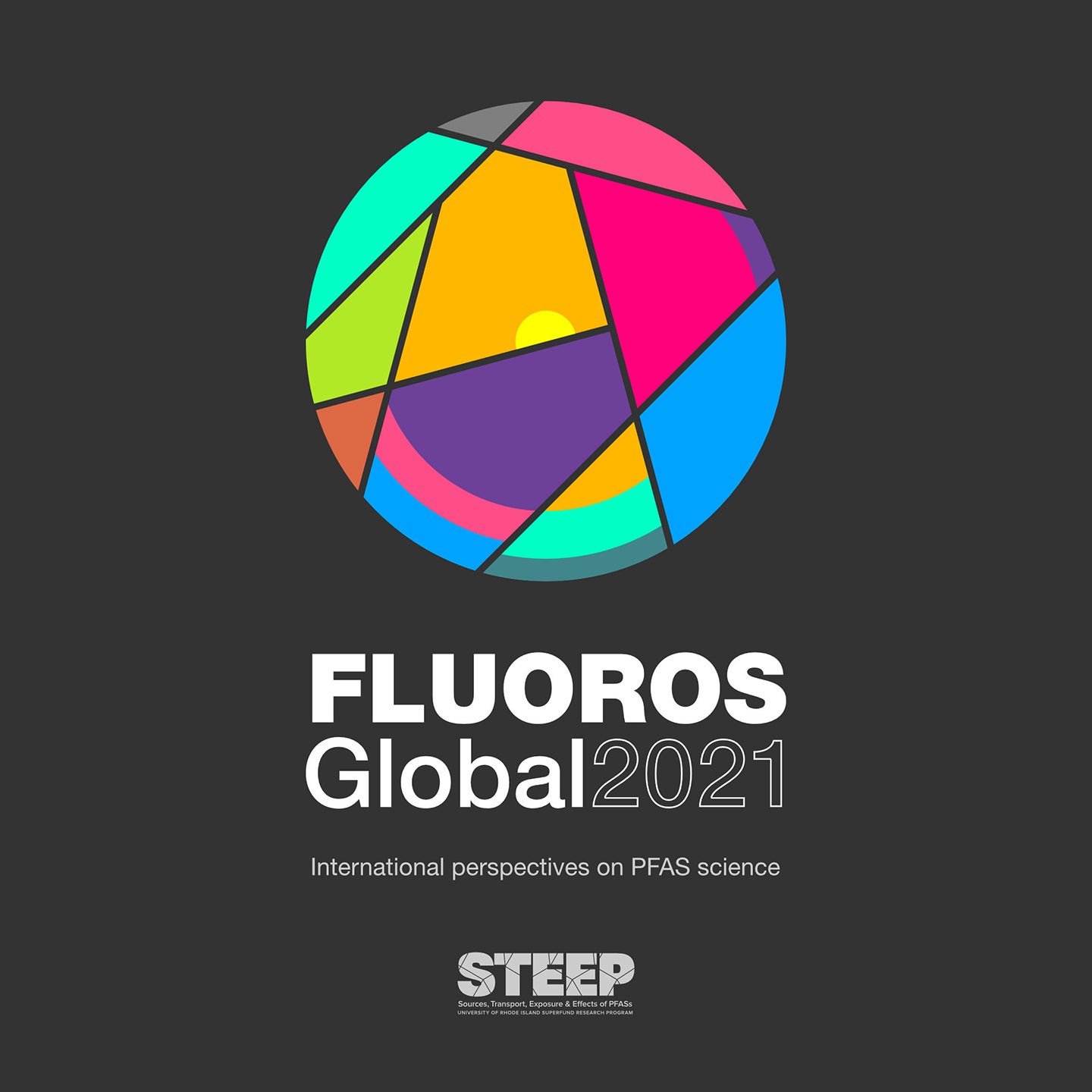NARRAGANSETT, R.I. – Sept. 30, 2021 – A leading international conference focused on science-based solutions for a specific kind of chemical pollution – PFAS – is getting underway, with experts from the world over coming together to share their latest findings and progress with a wide array of community stakeholders. FLUOROS GLOBAL 2021 takes place Oct. 3 – 7 with in-person and virtual options for participation. Registration is required.
The symposium, headquartered at the WaterFire Arts Center in Providence, emphasizes the dissemination of knowledge and resources concerning biomedical and environmental research advances regarding PFAS as well as work focused on minimizing both human exposure and environmental effects. PFAS, or per- and polyfluorinated alkylate substances, are a family of colorless and odorless manmade chemicals which are used in a wide array of household and commercial settings. PFAS uses are many; for example, they are used to retard fire, so are present within extinguishing foams, and they coat pizza boxes and popcorn bags, to keep them from getting soggy with grease. They are also prevalent in coatings used in outerwear, furniture, and carpeting to make them stain and water resistant.
These chemicals are now known to pose harm to human health and the environment – the chemicals disrupt hormones in people and animals, and are carcinogenic, or linked to cancer – and are especially pernicious once dispersed in drinking water sources. “PFASs has turned out to be a much greater health hazard than we thought,” says Dr. Philippe Grandjean, STEEP (University of Rhode Island [URI] Sources, Transport, Exposure & Effects of PFAS Superfund Research Program) co-lead.
“There is no way to put the genie of PFAS contamination back in a bottle, so countries will have to invest heavily to protect drinking water resources from PFAS, and find novel ways of curtailing further production and use,” says Rainer Lohmann, a lead STEEP researcher and chemical oceanographer associated with the URI Graduate School of Oceanography. Scientists the world over now study the problem, working to ensure that the best science informs practical answers at the community level.
That focus on innovation has also informed conference structure and content, says Judith Swift, a STEEP lead, who serves as Director of the URI Coastal Institute. “FLUOROS Global demonstrates that in times of COVID, we can come together even when a classical in-person meeting is not feasible,” she says. “The problem of PFAS contamination knows no boundaries and is of pressing concern everywhere. This event provides the arena and sharing spaces we need to coalesce answers and strategies.”
FLUOROS Global 2021 will address the rapidly evolving landscape of detection, health effects, regulation, remediation, and community response to PFAS contamination. National and international PFAS experts will discuss state-of-the-art research and put forth their insights on advances in the field to the benefit of consumers, manufacturers, oversight and environmental agencies, and global health specialists. Hundreds of established and early career scientists, government officials (international, federal, state, and local), impacted community members, journalists, environmental NGOs, and PFAS-linked product manufacturers are expected to attend.
Program Highlights include:
- Keynote Speaker Elsie Sunderland, a STEEP scientist of Harvard University and a leading PFAS researcher; she will discuss PFAS in the context of food webs impacting human consumers in case studies spanning from the remote Faroe Islands to communities in the Northeast of the United States;
- Panel sessions, such as one on PFAS impacts in the Arctic ecosystem, including discussion of the health and well-being of native and local communities, and potential steps for remediation;
- Lectures, such as one on the detection, identification, and toxicology of novel PFAS; other talks will focus on issues such as human biomonitoring programs and efforts underway to better understand the extent of impacts in varied environments.
The conference, funded in part by the National Institute of Environmental Health Sciences in coordination with partners from the Harvard T.H. Chan School of Public Health and Silent Spring Institute, is also considered of special interest to Superfund Research Program (SRP) trainees. These emerging leaders comprise the critical voice of the next generation of scientists, and they are encouraged to join the diverse set of established speakers and attendees.
A hybrid program, FLUOROS GLOBAL 2021 will be available in-person, and via live feed and recordings, as it will cover time-zones from Alaska to Australia. See more at the conference website at: https://web.uri.edu/fluoros/about/. Funding for this conference was made possible by the National Institute of Environmental Health Sciences under award number R13 ES031852-01. For a full list of sponsors, see: https://web.uri.edu/fluoros/sponsors/. STEEP is a partnership of the University of Rhode Island, Harvard T.H. Chan School of Public Health, Department of Environmental Health, and Silent Spring Institute, with funding provided under grant P42ES027706.

